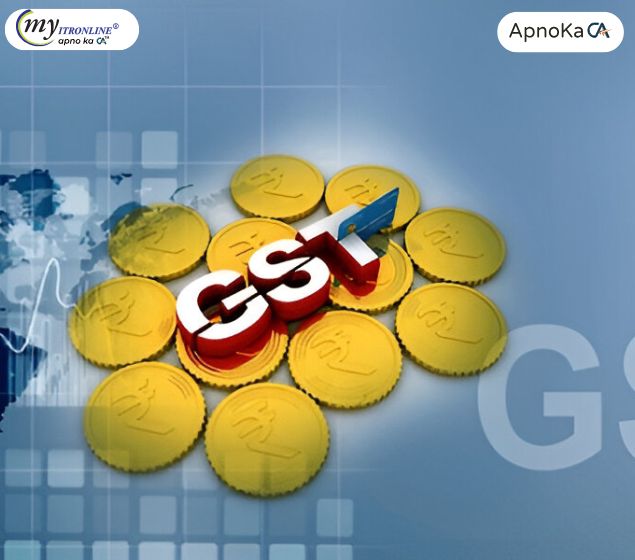# indiantax
12 posts in `indiantax` tag

CBIC Officially Notifies GST Appellate Tribunal (Procedure) Rules, 2025
The CBIC has notified the GST Appellate Tribunal (Procedure) Rules, 2025, effective April 24, 2025. These rules establish a detailed framework for the GSTAT, emphasizing mandatory e-filing via a dedicated portal, allowing hybrid hearings, and setting clear timelines. Key features aim to streamline GST dispute resolution, ensuring transparency, efficiency, and faster processing of appeals, thereby reducing the burden on High Courts and boosting taxpayer confidence.

19.2 Lakh Salary, Zero Tax? The Truth About India's New Tax Regime (FY 2025-26)
Analyzes the feasibility of achieving zero income tax on 19.2 lakh earnings under India's new tax regime (FY 2025-26 / Section 115BAC). Details the regime's rules, standard tax calculation, and debunks the zero-tax claim by highlighting the reliance on disallowed deductions (HRA, LTA, flexi-allowances). Concludes it's unrealistic for most salaried individuals

India TDS Rate Chart FY 2025-26 (AY 2026-27): A Preliminary Overview
An initial guide to Tax Deducted at Source (TDS) rates and thresholds for India's Financial Year 2025-26 (Assessment Year 2026-27), based on current provisions as of April 2025. Details include a comprehensive rate chart covering common sections, key considerations like PAN non-furnishing, recent threshold changes (e.g., for interest, rent, commissions), potential policy updates (like the status of Section 206AB), and essential compliance deadlines. The guide strongly emphasizes that final rates are contingent upon the Full Union Budget 2025.

How India's Income Tax Dept Uses AI to Monitor High-Value Transactions
India's Income Tax Department leverages AI and data analytics, including Project Insight and the Annual Information Statement (AIS), to monitor financial transactions, especially high-value ones. This blog explains how the system works, which transactions are watched, the implications for taxpayers, and how to ensure compliance in this new technological era.

Top 5 ITR Filing Errors for AY 2025-26 and How to Avoid Them
This blog post highlights crucial errors to avoid when filing Income Tax Returns for AY 2025-26 (FY 2024-25). It covers common mistakes like selecting the incorrect Assessment Year or ITR form, failing to report all income sources (interest, dividends, capital gains), discrepancies with Form 26AS/AIS/TIS, incorrect personal and bank details, and neglecting the mandatory 30-day e-verification window. The post emphasizes the importance of accuracy and reconciliation, concluding with advice to seek expert help from services like MyITROnline for a smooth filing experience.
.png)
Big Tax Change: No TCS Collection Under Section 206C(1H) from April 2025
Significant updates in TCS regulations: From April 1, 2025, Section 206C(1H) will be repealed. A comprehensive guide outlining the effects on sellers and buyers, necessary compliance actions, and required system modifications for businesses.
.jpg)
Tax Changes for NRIs: 15 Lakh Earners to Be Treated as Residents
New tax laws that impact NRIs have been adopted by the Indian government. An NRI may be considered a "Resident" for tax reasons if they make more than Rs. 15 lakh in India and do not pay taxes outside. The purpose of this modification is to guarantee equitable contributions and stop tax evasion. The blog examines its ramifications, tax obligations, and methods for preventing needless taxes.
.jpg)
CBDT’s New Form 49C Rules: Stricter Tax Compliance for Non-Residents in India
Stricter guidelines have been implemented by the Central Board of Direct Taxes (CBDT) for foreign nationals submitting Form 49C in India. Enhancing openness and guaranteeing adherence to tax regulations are the goals of these modifications. Important changes include more stringent penalties for non-compliance, obligatory digital filing, and expanded disclosure requirements. In order to prevent fines and operating delays, non-resident businesses are now required to keep proper records and follow more stringent filing deadlines.
.jpg)
GST Appeals & Notification 02/2025: Understanding Section 128A
The CGST Act, 2017's Section 128A, which gives taxpayers the ability to contest interest and penalty charges under the GST, is explained in this blog article. It goes over the section's main points, pertinent CBIC notices, and the appeals procedure.
.jpg)
Big Relief for Taxpayers: CBIC Waives Late Fees for GSTR-9C Filing
Late costs for GSTR-9C files that were postponed from FY 2017–18 to FY 2022–23 have been forgiven by the Central Board of Indirect Taxes and Customs (CBIC). The 55th meeting of the GST Council accepted this plan, which permits taxpayers to file outstanding taxes by March 31, 2025, without incurring penalties. Businesses gain from the waiver because it promotes compliance, lessens financial strains, and streamlines the GST system. Discover its significance, qualifying requirements, and detailed application procedure in this extensive blog.
.jpg)
Real Estate and NRI Taxation: Budget 2025’s Impact on TDS and 182-Day Rule
Budget 2025 is expected to include major improvements, including streamlining TDS on property transactions and modifying the 182-day criterion for defining residence. This blog digs into the existing issues that NRIs experience, suggested remedies, and the projected advantages of these reforms, which seek to make tax compliance easier and more transparent.
.jpg)
A Complete Guide to Preventing Tax Notices for NRIs
can be difficult to manage income tax as an NRI, and even small mistakes could result in tax notifications. The top 5 tax notifications that non-resident Indians (NRIs) frequently receive are highlighted in this blog. These notices include non-filing of returns, income mismatches, unreported income, suspected tax evasion, and faulty returns. It offers helpful advice on how to prevent these letters, including timely filing, correct income declaration, making use of DTAA advantages, and speaking with tax experts. NRIs may guarantee hassle-free tax compliance and steer clear of fines by being proactive and knowledgeable.
